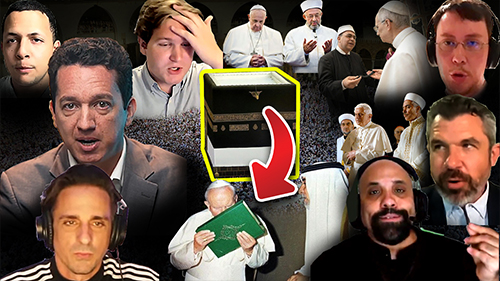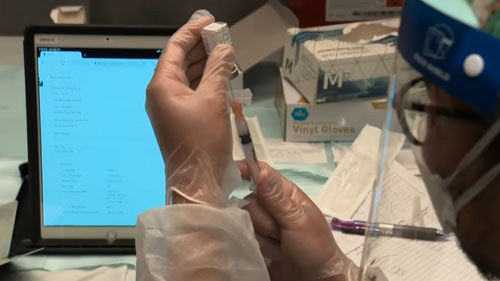| Recent Featured Videos and Articles | Eastern “Orthodoxy” Refuted | How To Avoid Sin | The Antichrist Identified! | What Fake Christians Get Wrong About Ephesians | Why So Many Can't Believe | “Magicians” Prove A Spiritual World Exists | Amazing Evidence For God | News Links |
| Vatican II “Catholic” Church Exposed | Steps To Convert | Outside The Church There Is No Salvation | E-Exchanges | The Holy Rosary | Padre Pio | Traditional Catholic Issues And Groups | Help Save Souls: Donate |  |









 " />
" /> " />
" /> " />
" /> " />
" /> " />
" />




On St. Hermenegild and Communion from heretics
St. Hermenegild was a 6th century martyr who was put to death for refusing to receive Holy Communion from his father’s Arian priest:
Some have argued that – or wondered whether – this case proves that a Catholic can never receive Communion from a heretic, including a heretical priest who purports to be Catholic and is not notorious or imposing about his heresy. If one digs into the history of St. Hermenegild’s case, the context of his refusal becomes clear, and so does the answer to our question.
St. Hermenegild was a Catholic convert who was at odds with his father. His father, Leovigild, was a radical Arian heretic. Leovigild was outraged upon learning of his son’s conversion to the Catholic Faith and was intent upon depriving Hermenegild of his kingdom and forcibly bringing him back to Arianism. The two actually went to war, with Hermenegild being imprisoned:
Thus, the case of Hermenegild was one where he was faced with notoriously heretical priests who were attempting to impose Arianism upon him – priests in league with his father who was trying to conquer the kingdom for Arianism. If a heretical priest demands that you accept his heretical position to receive Communion from him, you could never receive Communion from him because that would be tantamount to a silent acceptance of his heretical position. In Hermenegild’s case, reception of Holy Communion from the imposing Arian heretics would have been tantamount to an acceptance of Arianism and a denial of the Catholic Faith. Every Catholic should have resisted it even to death.
The case of Hermenegild, therefore, is obviously very different from the question of whether – in this grave crisis and necessity in which there are few valid priests left – one may lawfully receive Communion from a “traditionalist” priest (who claims to accept all Catholic teachings and celebrates the traditional Mass), but holds some heresy, such as salvation for non-Catholics, and is not notorious or imposing about his heresy. In this case, a Catholic may receive Communion and attend the traditional Mass of such a priest, as long as he doesn’t agree with him or support him at all.
Cardinal de Lugo, who was a prominent theologian of the 17th century, who was often quoted by St. Alphonsus, addresses this very issue and indicates that the position we’ve just enunciated was the common teaching of theologians.
Notice that Cardinal de Lugo distinguishes between attending a heretical rite (which is never permitted) and attending a Catholic Mass or rite celebrated by an undeclared heretic (e.g. a priest of the SSPX who celebrates the Catholic rite and claims to be Catholic but is actually a heretic). De Lugo is thus addressing the very issue which is confronting people today and which was posed in the question. And what does he say? He teaches that attendance at such a Mass is lawful and that this is the “general and true” position of Catholic theologians. Please note that Cardinal de Lugo also points out that if circumstances are such that scandal or a denial of the Faith would necessarily arise (e.g., if the priest made an announcement that everyone who attends must agree with him, such as the priests of the SSPV have on the salvation issue), then you necessarily couldn’t go; or if the priest is notorious about his heresy, then you definitely shouldn’t go.
Sign up for our free e-mail list to see future vaticancatholic.com videos and articles.
Recent Content
^